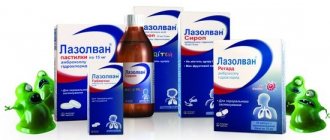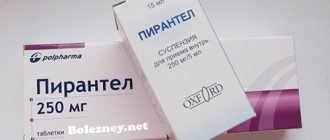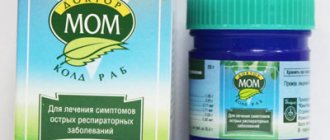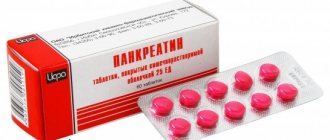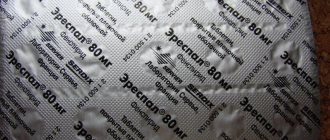Doctors distinguish between local (at the site of inflammation) and general complications. Common complications include complications affecting other organs - rheumatism, nephritis, arthritis, sepsis. Local - purulent complications in the area of the tonsils and pharynx.
In order to prevent the development of possible complications, it is necessary to regularly monitor the patient.
View gallery
How to treat a sore throat quickly and effectively at home
Modern medicine allows you to receive a professional level of rehabilitation without leaving your home. You just need to take medications and use special devices. But the choice of one or another treatment method depends on the type of sore throat, of which there are several and they all differ from each other:
Acute sore throat
Acute sore throat manifests itself clearly. Symptoms intensify, the disease progresses more intensely. The full range of symptoms can be observed 1-2 days after infection. This is good from the point of view that it is possible to immediately diagnose a sore throat and promptly begin the correct treatment of acute tonsillitis. During home therapy, strong antibiotics and gargling with solutions with soda, salt, and iodine are used.
Catarrhal
A relatively mild form of the disease that occurs superficially. The tonsils become inflamed and increase in size, but are not affected inside. Temperatures may rise to 39 degrees Celsius. Treatment is simpler than for other cases, but the chances of becoming infected with this form are greater.
Streptococcal
Caused by bacteria - streptococci. All people have them in their throats. The inflammatory process is caused by an infection that provokes the accelerated proliferation of these same bacteria. The process begins with inflammation of the tonsils, but without treatment it can quickly move to other parts of the respiratory tract. The symptoms of acute tonsillitis include a white purulent coating on the tonsils. Despite the complexity of the disease, it can be treated without problems using pharmaceutical drugs or folk remedies.
Lacunarnaya
A complicated form of the catarrhal type of sore throat. The tonsils become covered with a white coating, the temperature can rise above 39 degrees. Strict medical supervision is required, as the risk of complications is high.
Bacterial tonsillitis
As the name suggests, this species is caused by various bacteria. Symptoms include inflammation, chills, weakness, and high fever. A sore throat or change in the shape of the tonsils are specific symptoms for this variety.
General or systemic complications
Why is sore throat dangerous?
- Heart complications. The cause is rheumatism. Very dangerous for humans. Most often occurs during self-medication. If treatment procedures are not followed correctly and medications are selected incorrectly, the body produces antibodies that suppress connective tissue proteins. As a result, rheumatic nodes are formed. The muscles stop contracting normally. A heart defect develops. All this can provoke myocardial infarction and the formation of blood clots. Symptoms: arrhythmia, angina pectoris, pain in the heart area, frequent and intermittent breathing, rapid heartbeat, swelling of the legs, shortness of breath. Cardiological treatment. Prevention – complete and qualified treatment of sore throat.
- Complications on the joints. They are also a consequence of incompletely cured purulent tonsillitis. Streptococcus bacteria interfere with the proper functioning of the body. Rheumatism of the joints occurs. The main symptoms are acute pain, swelling, swelling, fever, dry cough. Most often, the disease affects the joints of the lower extremities (knees, ankles), as well as the joints of the elbows, hands, and others.
To overcome the negative consequences, it is necessary to cure a sore throat, then stay in bed for several days and avoid hypothermia. Subsequently, use special preparations. Physiotherapy brings good results.
- Complication of the kidneys after a sore throat. There are two types: pyelonephritis and glomerulonephritis. Occur from several days to a month after illness. The main danger is the transition of diseases to the chronic stage, including during the period of renal failure (with glomerulonephritis). Symptoms of pyelonephritis are lumbar pain, chills, high fever, frequent urination. Glomerulonephritis is accompanied by edema, blood in the urine, and high blood pressure. Both diseases require immediate hospitalization and the full arsenal of therapeutic measures.
- Complications with the appendix. Occurs as a result of infection. Treatment is surgery.
- Sepsis is blood poisoning. A very dangerous general complication of sore throat. Can occur at any stage of the disease. The causative agents are streptococcal bacteria that accompany purulent tonsillitis. The disease progresses very quickly. The patient's condition can worsen in a matter of hours. Pustules appear on the body. Bedsores may form and the body becomes dehydrated. Sepsis can affect the central nervous, cardiovascular and renal systems. Intoxication of the body occurs. Sepsis is treated only in a hospital setting, often in the intensive care unit.
- Streptococcal toxic shock. It is a consequence of poisoning the body with streptococcal toxins. It is rare with purulent sore throat. But the consequences are very serious. In 3 out of 10 cases, the disease ends in death. The causes of death were shock and respiratory failure. The disease progresses rapidly. Therefore, early diagnosis is important. But as a rule, patients go to medical institutions late, when the symptoms of the disease leave them practically no other choice. These include fever, kidney pain, breathing problems, and skin rashes. Treatment is carried out in intensive care. Mechanical ventilation is often required. The difficulty of treatment lies in the fact that medical scientists have not yet fully identified the mechanisms of bacterial spread. The accumulation of bacterial toxins varies from person to person.
- Chronic tonsillitis. It is a direct consequence of an incompletely cured sore throat. The reason is infectious bacteria located in the tissues of the tonsils. In a healthy body they are localized by the immune system. Therefore, they do not have a negative impact on humans. When suffering from purulent tonsillitis, especially if it is not treated correctly, the patient’s immunity is weakened. Bacteria quickly develop and aggravate the disease. Diagnosis is difficult due to the similarity at the initial stage of its symptoms with simple sore throat. In the complicated form, the signs of chronic tonsillitis take on a distinct form. The disease is accompanied by constantly inflamed tonsils and bad breath. Exacerbation of the disease is stable and often recurring. Treatment at the initial stage can be conservative. The lacunae are periodically cleaned, physiotherapy is carried out, and the necessary medications are taken. If there is no desired effect, the tonsils are removed.
First aid for incipient sore throat
As a measure to prevent the development of the disease, a solution of water with salt and iodine is used to gargle. For 200 ml you need half a teaspoon of salt and a couple of drops of iodine. Rinse every 2-3 hours. Fusafungine antiseptics will help slow the spread of bacteria in the early stages. If there is an increase in temperature above 38 degrees, then it should be brought down with Paracetamol or Ibuprofen.
Read in detail about antibiotics for sore throat in adults in tablets here.
Types of inflammation of the respiratory system
To understand why angina is dangerous, you need to understand what types of its manifestations there are. Depending on the specific source of infection or virus, doctors select the main stages of treatment. It is necessary to distinguish between the direct effect of bacteria on the human larynx, referred to as local symptoms of the disease, and the result of an internal inflammatory process. In the latter case, the symptoms are often confused and they begin to carry out therapy based on their own considerations. This only makes the situation worse.
Streptococcal or follicular tonsillitis is widespread. Doctors often do not bother to begin classifying the disease, but prescribe medications based on external signs. All types of throat inflammation are well treated with generally accepted regimens, but it would not be superfluous to obtain information about the cause of the ailment. Such measures will help to avoid a recurrence of the unpleasant situation and carry out preventive treatment.
If you have a viral infection, such as a type of herpes, it will be difficult to get rid of it completely. But the information obtained from blood tests will help you adjust your future life in accordance with the chronic disease. If inflammation is detected in a child, a red throat is observed with ailments such as scarlet fever or measles. Therefore, it can be dangerous to carry out your own therapy; it causes complications with angina.
What to do with swelling of the throat and white plaque with sore throat
The basis of treatment will be a course of antibiotics for tonsillitis. Many people stop taking medications when symptoms disappear, which is a big mistake. It is this behavior that most often leads to chronic tonsillitis. The complex must be treated with the throat using sprays and gargles. Herbal decoctions based on chamomile, calendula, sage and eucalyptus cope well with this task . Particularly severe cases are forced to use UHF therapy, but if it gets to this stage, then this is definitely not a home level of treatment. Proper nutrition will also help the body cope with the disease. The diet should be enriched with vitamins B and C and plenty of liquid.
If the inflammation is caused not by bacteria or infection, but by a virus, then there is no point in taking antibiotics.
Consequences
In the acute form of tonsillitis, the consequence can be chronic tonsillitis. This happens if the patient does not seek medical help, trying to cope with the pathology on his own.
Rheumatic changes, which are complications of tonsillitis in adults and children, can lead to heart defects and further disability if treatment is not started in time.
You can't bear a sore throat on your legs. With tonsillitis, the consequences can be prevented if you seek medical help in time.
What to take for a sore throat (how to cure, help, remedies, what to take)
A sore throat has always been a problem for all people, so now there are many ways to combat it. They act in different ways so that in any situation there is a chance to find a suitable treatment:
Nebulizer treatment
The operation of this device is similar to spraying a spray, but this option delivers the medicine to the desired point gently, purposefully, gradually, which increases the effectiveness of therapy. The advantage of the inhaler was its calming, moisturizing effect . Despite the fact that sprays most often irritate the mucous membrane due to their aggressive effects, and the alcohol content leads to drying out of an already dry throat.
The benefits of inhalation with chlorophyllipt in a nebulizer are described here.
Compresses
They are used in the early stages of the disease at a temperature of no more than 37 degrees. In the later stages, when the tonsils are inflamed, as well as at high temperatures, the compress leads to complications. The most popular options were alcohol, potato, cabbage and honey.
Coca Cola
It’s a rather controversial decision, but it would be stupid to deny that it can be useful. This is an aggressive remedy, no doubt, but sometimes only such methods can get rid of the disease. The main thing is that cold cola will not help, but will only worsen the situation. Warm cola is not as tasty, but relatively healthy.
Onions and honey
This mixture will help get rid of the main symptoms, especially with a timely response. The mixture is easy to obtain: you need to mix equal amounts of fresh onion juice and honey, stir until a homogeneous consistency is obtained. Treatment is carried out by lubricating the tonsils 3 times a day.
This option is well suited for preventive purposes. To do this, you need to treat your tonsils every 2-3 days. This is a good way to get protection when there is an outbreak of this disease.
Soda
This substance can slow down the development of bacteria, which will stop the spread of the disease and simplify treatment. The main symptoms cease to be so intrusive after 1 day of therapy. To prepare the solution, add a small spoon of soda to 1 glass of warm boiled water . If the symptoms are particularly severe, you can add a few drops of iodine.
Sore throat, what to gargle at home is outlined in this article.
Ginger and lemon
This combination will help relieve the main symptoms of the disease, speed up recovery and strengthen the immune system for the future. You need to prepare a drink from ginger, for which you need to grind the ginger at the rate of 2 small spoons per mug, then pour in 250 ml of water and let it brew over low heat for a third of an hour. Then the drink is cooled and a teaspoon of lemon juice and honey is added to it. Along with this tea, you should eat a whole, but not too large, lemon, cut into pieces along with the peel. You will have to be patient, but the result will not take long to arrive.
Aloe
The use of this plant can be found almost everywhere where there is a need to cure something. Angina was no exception. The simplest method of application involves lubricating the tonsils with the juice of the plant. Various tinctures with the addition of aloe vera are also treatment options. This method is already noticeably more complicated, but more effective. For chronic illness, tinctures are recommended. You can also make a compress from aloe. It is necessary to mix one part of the plant juice with 2 parts of honey and 3 parts of vodka . This option will help relieve inflammation, warm up, and speed up blood circulation.
Treatment methods
Any consequences of a sore throat can be avoided if you promptly consult a doctor who will select a competent therapeutic course.
Treatment is carried out at home. Only children under 1 year of age and patients with severe pathology are hospitalized.
Depending on the form of the pathology, antiviral or antibacterial drugs are prescribed.
Non-steroidal anti-inflammatory drugs are used to relieve pain and lower temperature. The course of treatment lasts from 7 to 10 days.
Often, sick people turn to traditional methods of treatment - gargling with various infusions and decoctions, heating, etc.
You can use similar methods, but to prevent complications after tonsillitis from bothering a person, all procedures must be agreed upon with a doctor.
Sore throat is a rather dangerous disease. It is not always possible to avoid its consequences. In this case, it is rare to treat another disease - one that was a complication of sore throat.
Consequences of negligence in relation to the treatment of sore throat at first
The consciousness of many people, when they hear the word “angina,” immediately creates a series of very unpleasant symptoms. But in fact, they may not reach them if treatment is taken on time and competently. However, what should you be afraid of if treatment has been started:
Dry throat (the first sign, what you can and should do, how to cure it)
This is one of the first signs of tonsillitis, which signals the onset of the disease. It cannot be prevented if the disease has already begun. But in cases where proper attention is not paid to this, the dryness intensifies. The protective layer of the throat is destroyed, which accelerates the development of the disease.
Lost voice (how to get rid of such a symptom, what to drink)
This symptom is observed the next day after the disease in the absence of proper treatment. The voice may simply become hoarse or disappear. Sometimes speaking in a whisper becomes problematic. The severity of the symptom depends on the form of the disease, as well as the conditions in which the patient was. Cold water and the environment aggravate the situation. In addition, you can develop a complication that leads to damage to the vocal cords.
Pain when swallowing (swallowing is very painful)
This symptom is closely related to all the previous ones. The causes of a sore throat when swallowing are almost guaranteed to be due to dryness, as the unprotected throat becomes irritated and inflamed. This causes food to have less space when swallowing, leading to a sore, irritated throat. Indifference to the symptom can lead to even greater inflammation, which, following problems with eating, can make drinking water problematic and even make it difficult to breathe. Fortunately, this can be easily avoided by drinking herbal or lemon tea.
You will find all the information on how to get rid of purulent plugs in the throat at this link.
Causes of complications after tonsillitis
The consequences of a sore throat appear for the following reasons:
- This is a streptococcal infection. The insidiousness of this microorganism is that it has antigens similar to the cells of the human body. When the immune system goes after these bacteria, it often damages its own cells.
- The pathogen itself, without timely destruction, provokes inflammatory processes in tissues. Local signs of the disease appear.
- The variety of forms of tonsillitis often makes diagnosing the disease difficult and allows for the possibility of errors.
- Sometimes doctors, without conducting adequate diagnostics, prescribe drugs for their own reasons. This action often leads to a deterioration in the patient’s condition: he develops impotence, weakness and other signs of ill health.
- The norm of fluid intake is not observed. Patients should drink at least 3 liters of water per day. In addition to fluids, an organism weakened by disease also needs vitamins.
- When the causative agent is a type of herpes, it will be difficult to fully recover. The presence of this microorganism requires treatment from the patient in case of exacerbations of a chronic disease.
- Drinking alcoholic beverages and smoking during illness weakens a person’s defense system, as does the presence of diseases of somatic origin.
- If you do not adhere to bed rest during a sore throat, ignore diagnosis and do not receive timely treatment, forget to do procedures for sanitation of the oral cavity.
Informed people who do everything correctly after the onset of the disease have a good chance of recovering from tonsillitis without complications.
Prevention at home for adults and children: what to do to avoid getting infected or getting a sore throat
Prevention is the most effective method of combating any disease. It is easier to prevent infection from entering the body than to expel it from there. In order to minimize the risk of getting a sore throat, follow some rules.
- Proper nutrition . The diet should be enriched with vitamins. Particular attention should be paid to groups B and C. Also, nutrition should be correct in terms of balance. It is advisable to receive daily norms of all elements necessary for the body. Eating late, overeating or undereating will also weaken the body.
- Sports activities . This point will be especially relevant for older people, office workers and workers in similar quiet professions. Exercise will strengthen the heart and blood vessels, improve blood flow, which will more effectively remove waste and toxins from the body, preventing them from reducing immunity. It’s worth accepting this fact and starting doing exercises so that you don’t take pills again later.
- Visiting a sanatorium, relaxing at resorts . Such a vacation will relieve the body not so much physically, but psychologically. Clean air, water, absence of city bustle - people accustomed to all this do not notice the negative consequences, but once you try, it will become clear how exhausted the body is.
- Rejection of bad habits . Particular attention is paid to smoking. It affects the throat - the main target of sore throat.
- Prevention with lemon and ginger . Regular consumption of these products 2 times a week will help strengthen your overall immunity.
- Elimination of chronic diseases of the nasopharynx . This includes rhinitis and sinusitis. Often, due attention is not paid to the need to treat such diseases; they do not particularly manifest themselves. But because of them, the immune system is greatly weakened, because it is inflammation that becomes the source of infection.
There is a widespread belief online that a protein-free diet will also help strengthen the immune system. This absolutely cannot be believed. Protein is a building material for the body. It nourishes muscles, ligaments, tendons, and participates in the formation and renewal of tissues. Such a restriction will only weaken the body, and in especially severe cases can lead to diseases other than sore throat.
Choice of antibacterial drug
The choice of antibacterial drugs for angina depends on the age of the patient, the type of infection and the nature of the disease. Adults are allowed to use medications in any form - tablets, powders, injection solutions.
Rules for choosing and taking antibiotics:
- Elderly people are often immune to many types of antibiotics; when signs of angina appear, broad-spectrum drugs are used, and after receiving the results of the antibiogram, the treatment regimen is adjusted;
- older people have various chronic diseases; when choosing antibiotics, they take into account not only their effectiveness, but also interactions with other medications;
- People with severe forms of sore throat and weakened immune systems are most often prescribed medications in the form of injections to speed up the therapeutic effect of the drug.
It is better to take antibiotics with food for better absorption
When taking antibiotics, strictly follow the instructions: take medications at the same time to get rid of pathogenic microorganisms, maintain a constant concentration of active substances in the blood.
It is better to take all antibiotics with meals, or directly during meals - this will help improve the absorption of active substances and reduce the risk of developing dyspeptic disorders.
conclusions
- Sore throat (tonsillitis of any type: streptococcal, bacterial, lacunar) may not manifest itself immediately, which increases the risk of complications.
- It can be treated at home, but only not in severe forms and under the supervision of an otolaryngologist.
- A high temperature with inflamed tonsils (the throat may begin to hurt, become swollen, painful to swallow, a lump or plug in the throat) is always present with tonsillitis.
- In order to prevent the disease from developing, it is worth resorting to first aid measures, even if there are only suspicions.
- Treatment in pregnant women differs only in less severe antibiotics.
- If you do not start treatment on time, you can get complications, the throat will not go away for a long time and nothing will help.
- The best way to prevent disease is prevention.
Preventive measures
The negative consequences of a sore throat can be prevented by following the following recommendations:
- when the first symptoms of the disease appear, you must consult a specialist;
- follow all recommendations;
- strictly observe bed rest throughout the entire period of intoxication;
- carry out a full course of antibacterial therapy;
- strengthen immunity;
- do not self-medicate;
- after a sore throat, avoid heavy physical exertion and hypothermia for a month.
By following these preventive measures, you can not only prevent complications, but also improve your health, and therefore prevent the development of many diseases.
Follicular
Symptoms:
- Body temperature up to 40 degrees;
- Acute sore throat;
- The pain radiates to the ear;
- Severely enlarged lymph nodes;
- The tonsils are greatly enlarged and swollen;
- There are yellowish wounds on the tonsils, the size of a match head.
For follicular sore throat, you need to take antibiotics, for example, Sumamed.
Treatment is carried out with 1st row antibiotics (penicillins) - Amoxicillin and 2nd row (macrolides) - Sumamed, Azitrox. With this type of illness, a person must gargle frequently. For example, a solution of Lugol, Dolphin, Iodinol.
The patient should be given a lot to drink; warm milk, herbal tea with chamomile, and still mineral water will do.
Rules for the use of antibiotics
Despite the fact that antibiotics are designed to deprive a person of many problems that cause bacterial infections, they can cause significant harm to the body. To prevent this from happening, you should adhere to some rules for their use.
- It is better to take all antibiotics after eating to minimize the harmful effects on the body.
- In parallel with antibiotics, it is recommended to use probiotics, which restore the intestinal microflora (since antibiotics not only eliminate “bad” bacteria in the body, but also “good”).
Examples of probiotics
- Before using any antibiotics, you should do allergy tests to rule out a reaction to the active substance.
New generation drugs have a gentle effect on the body thanks to the additional components that are included in their composition. And many manufacturers simplify the procedure for choosing them and produce drugs that are intended specifically for children or adults.
What is prohibited to do
If you want a disease such as a sore throat to go away and treatment to be quick and effective, remember what you should not do:
- Compresses for fever;
- Compresses for purulent sore throat;
- Smoking and drinking strong alcohol;
- talk a lot;
Smoking is prohibited during treatment
- Avoid antibiotics;
- Eating hard, salty, too hot or cold foods;
- To bear the disease “on your feet”;
- Self-medicate;
- Remove pus from the throat mechanically.
When to use antibiotics
It is worth paying attention if you have the following conditions:
- Allergy. Develops to a specific drug only if the person has taken it previously. Accordingly, adults are more prone to allergic manifestations than children, since by adulthood every person has taken antibiotics at least once. You must tell your doctor about all antibacterial drugs taken previously and allergic reactions to them.
Most often, adults are allergic to penicillin and antibiotics based on it. Among the drugs in this group, Ampicillin, Amoxicillin, and Phenoxymethylpenicillin are often used to treat sore throat.
Allergy to penicillin occurs in 6% of adult patients, half of them also have increased sensitivity to cephalosporins, the active substance is cefadroxil. People who are sensitized to both penicillins and cephalosporins are likely to have a beta-lactam ring allergy. This phenomenon is not lifelong; every year 10% of patients in this group lose hypersensitivity to the components of modern penicillin antibiotics.
However, in the presence of allergic reactions to both cephalosporins and penicillins, treatment with macrolide antibiotics is prescribed, the most common of which is Erythromycin.
If there is a simultaneous allergy to the beta-lactam ring and macrolide drugs, the patient is prescribed lincosamides; one of the most common drugs in this group is Lincomycin. They should be taken with caution and only under the supervision of a doctor, as they have many side effects.
- Resistance of the angina pathogen to antibiotics. The most common reason is their misuse or overuse. According to data, about 30% of antibiotics taken are considered excessive. (1)
Any antibiotic has a course of use that must be followed. If the patient ignores these rules and stops taking the medicine as soon as the negative symptoms disappear, some of the pathogens remain viable, acquiring signs of resistance to the antibiotic. This gives rise to a population of antibacterial-resistant bacteria.
Due to the prevalence of resistant strains of angina pathogens, when a diagnosis of angina is made, the patient is required to do a bacterial culture and undergo tests. This makes it easier for a doctor to determine the sensitivity of bacteria to antibiotics of a certain group and prescribe adequate treatment.
- Low performance in adult patients. Improper treatment of sore throat can be as dangerous as completely ignoring the disease. And if among younger patients the situation is more common when worried mothers give their children antibiotics at the first sign of a sore throat, even if it does not require such radical measures, then adults in most cases suffer the disease “on their feet.”
For the treatment of responsible patients, antibiotics are prescribed in the form of capsules, tablets, and suspensions. Whereas patients who are unable to adhere to the course of treatment are given antibiotic injections. The drugs prescribed in both cases are the same, only the release form and dosage regimen differ.
- Are you taking other medications? People taking antibiotics should not take other medications or herbal remedies without talking to their doctor. Some over-the-counter medications may also interact with antibiotics. Antibacterial drugs should not reduce the effectiveness of other medications or aggravate their side effects.
Some doctors suggest that antibiotics for a sore throat may reduce the effectiveness of oral contraceptives. However, research generally does not support this.(2)
However, if you have vomiting or diarrhea, the pills may be less effective. In these circumstances, take additional contraceptive measures.
Some common medications interact with certain antibiotics. These include:
- Cyclosporine - cannot be taken together with azithromycin and penicillins, as this increases the toxic effect;
- Amoxicillin in combination with clavulanic acid should not be taken simultaneously with probenecid;
- blood thinners;
- antihistamines;
- antacid drug;
- multivitamins and some supplements, especially those high in zinc, iron, and calcium;
- non-steroidal anti-inflammatory drugs (NSAIDs);
- medications for psoriasis;
- medications for rheumatoid arthritis;
- potassium-sparing diuretics;
- antifungal drugs;
- diabetes medications;
- muscle relaxants;
- steroids;
- medications for Parkinson's disease;
- lithium;
- retinoids and vitamin A;
- cholesterol drugs, including statins;
- migraine medications;
- gout medications;
- tricyclic antidepressants.
That is why, before prescribing antibiotics for a sore throat to an adult patient, the doctor must carefully study the medical history and obtain all the information about the medications that the person is currently using.
Antibacterial drugs must be taken strictly according to the schedule at the same time. Indiscriminate use can lead to a decrease in the sensitivity of bacteria to the antibiotic and in the future, this drug will no longer help.
Each drug has an annotation; usually antibiotics are taken 1-3 times a day, at regular intervals. In order for the drug to be better absorbed into the blood, it should be taken either 1 hour before meals or 2 hours after meals.
How many days to drink?
Antibiotics begin to act immediately after administration. However, you may not feel any improvement for two to three days. This depends on the type of infection and how quickly your body recovers from treatment.
Most antibiotics should be taken for 7 to 14 days. The exact dosage and duration of treatment is determined by your attending physician.
Even if you feel better after a few days of treatment, you will need to complete a full course of antibiotics to completely cure the infection. It can also prevent antibiotic resistance.
| Drug name | Price in rubles |
| Augmentin | from 150 rub. up to 460 rub. |
| Amoxicillin | from 60 rub. up to 350 rub. |
| Amoxiclav | from 130 rub. up to 450 rub. |
| Azithromycin | from 130 rub. up to 360 rub. |
| Zitrolide | 310 rub. |
| Clarithromycin | from 190 rub. up to 740 rub. |
| Lincomycin | 150 |
| Panclave | 385 rub. |
| Rapiklav | 420 rub. |
| Sumamed | 570 rub. |
| Tetracycline | 125 rub. |
| Flemoxin Solutab | 250 rub. |
| Ceftriaxone | from 170 rub. up to 1050 rub. |
Amoxicillin was originally developed as a replacement for the popular antibiotic penicillin. It was required that the new drug retain all the advantages of its “ancestor” and have no disadvantages.
Advantages of Amoxicillin as an antibacterial drug:
- high effectiveness in the treatment of bacterial infections whose pathogens are not resistant to penicillin antibiotics, prevents the development of complications;
- does not have an inhibitory effect on the beneficial intestinal microflora, does not provoke dyspeptic disorders and other side effects;
- has high bioavailability, is almost completely absorbed by tissues (93% of the active substance). This distinguishes Amoxicillin from other drugs of the penicillin group, even those with greater potency;
- a variety of release forms - tablets, capsules, powders, suspensions, injections, which allows the product to be used to treat patients of all age groups;
- It is also prescribed to small children, including infants, as it has a gentle effect on the intestinal microflora without causing dysbacteriosis. For infants, Amoxicillin is prescribed in the form of a powder from which a suspension is made.
The following drugs are made based on amoxicillin: Flemoxin Solutab, Augmentin, Amoxiclav, Ranoxil. All of them are suitable for the treatment of purulent tonsillitis, acute tonsillitis in children and adults, and have an affordable price and a minimum of side effects. With a correctly prescribed drug, sore throat and its unpleasant symptoms are eliminated in five days.
The drug Augmentin deserves special attention - a product that contains not only amoxicillin, but also clavulanic acid. By itself, this excipient has weak antibacterial activity; its main function in the complex is to protect the active substance from destruction by bacterial enzymes.
Thus, Augmentin effectively fights even strains of microorganisms resistant to amoxicillin. The complex of active ingredients is safe to use and does not produce additional side effects. Other drugs based on this complex: Amoxiclav, Bactoclav, Panclave, Ecoclave. To be on the safe side, doctors prescribe them immediately instead of regular amoxicillin.
The downside of this popular antibiotic is a number of problems that arose precisely because of its widespread availability and widespread use. Since amoxicillin is often prescribed for the treatment of bacterial diseases, including tonsillitis, in some cases even without an accurate diagnosis, many microorganisms have become resistant to the active substance of the drug.
And with frequent use of this drug, the patient may develop hypersensitivity and allergic rashes. At the same time, resistant strains of bacteria may not respond to treatment even with a complex of amoxicillin and clavulanic acid. This forces doctors to look for an alternative option.
Groups of antibiotics used to treat sore throat in adults (in descending order of preference):
- Penicillins. The most ancient and popular drug of this series is Penicillin itself; it is usually used by injection if Amoxicillin is not at hand. The same applies to other drugs of the penicillin group - Ampicillin, Phenoxymethylpenicillin and Benzathine benzylpenicillin. They are not as effective as amoxicillin, have less bioavailability and absorption, are less safe in terms of side effects, and provoke the same allergic reactions in patients sensitive to penicillin.
- Cephalosporins. The drug Cedrox, Duracef, Biodroxil belong to the group of cephalosporins based on the active substance cefadroxil. They are a worthy alternative to penicillin antibiotics, therefore they are prescribed to adult patients with sore throat with an allergy to amoxicillin or high resistance of pathogens to penicillin drugs. Other popular cephalosporins are Cefaclor, Cefazolin, Cephalexin.
- Macrolides. If the causative agent of the disease is resistant to antibacterial drugs with a beta-lactam ring, treatment of angina in adult patients is carried out using macrolides. This group of drugs successfully fights streptococci and staphylococci, which most often provoke inflammatory processes in the upper respiratory tract. Macrolides form a high concentration of the active substance in tissues, inhibiting pathogenic microflora. Their effect is so strong and effective that a seven-day course of treatment is usually sufficient to destroy the causative agents of sore throat and complete recovery.
The most popular drug in this group is Azithromycin; Clarithromycin, Midecamycin, Josamycin, Roxithromycin and other drugs are also used to treat angina. But antibiotics of a number of macrolides have a significant drawback - a pronounced side effect in the form of digestive upset. Macrolides inhibit not only pathogenic strains that provoke sore throat, but also beneficial intestinal microflora, so they are prescribed with great caution. Another disadvantage of macrolides is their high price, compared to penicillins.
- Lincosamides. Prescribed when it is impossible to use the above antibiotics. Despite their fairly high effectiveness, the main drawback is that pathogenic microorganisms quickly get used to the drugs, developing resistance. Popular drugs in this group are Lincomycin, Clindamycin.
It is important to know
How does a sore throat occur?
The disease can be caused by a number of pathogenic organisms - bacteria, viruses, fungi. The infection can be transmitted in three ways - external, internal, through the blood.
Sore throat often occurs as a result of hypothermia or a viral infection
In the first case, a sore throat can be contracted through close contact with a patient - through airborne droplets, through the gastrointestinal tract. In the second - due to internal infections in the body itself. In the latter case, as the name implies, through blood.
The causes of the disease include:
- Penetration of infection into the body;
- Hypothermia;
- Environmental pollution;
- Stress,
- Chronic fatigue,
- Depression;
- Poor nutrition;
- Weakened immunity.
What remedy for sore throat should I buy?
To choose the right medicine correctly, you should consider the following factors:
1. The cause of sore throat. This is the main factor influencing the choice of medication. If the causative agent of sore throat is bacteria, then the medicine must be chosen among antibiotics. The doctor must prescribe the drug, taking into account the patient’s weight, age, the presence of allergic reactions, the activity of the drug and the sensitivity of the pathogen to the drug, the patient’s tolerance, and the severity of tonsillitis. The dosage and course of administration are individual in each case.
If the causative agent is a virus, then the main drug for treatment should be an antiviral agent.
2. The severity of the sore throat. The inflammatory process has 3 stages:
- Lacunar tonsillitis is the most severe stage, in which extensive purulent formations appear on the tonsils, sometimes merging into a mesh;
- Follicular tonsillitis - many clearly defined, protruding white or yellowish pustules, the size of a millet seed, appear on the tonsils;
- Catarrhal tonsillitis - the tonsils are inflamed and red, but there is no pus.
The choice of medicine depends on the severity of the course; the more severe the inflammatory process, the stronger the medicine should be.
To reduce unpleasant symptoms, it is necessary to combine the main medication with symptomatic therapy (painkillers and antipyretics).
Forms of the disease and treatment
It depends on the causative agent of the infection which drugs will be used to treat a sore throat. There are 4 types of acute tonsillitis:
- Herpes
- Viral
- Purulent
- Follicular
Most often, purulent and follicular forms are diagnosed, which are caused by bacteria.
For herpes sore throat, it is forbidden to warm the throat. Warmth encourages the virus to multiply. Remedies for the treatment of herpes-type sore throat:
- Antiviral and antiherpes drugs
- Immunomodulators and restoratives
- Antiseptics
- Febrifuge
- Painkiller medicine
If herpes sore throat is accompanied by a bacterial infection, which is not so rare, therapy is supplemented with antibacterial drugs and probiotics.
Medicines for sore throat of viral origin are not used . Only antipyretic and painkillers are used. The body itself must overcome the virus.
Features of treatment in children
Treatment for children is not radically different from treatment for adults. Like adults, children are prescribed antibacterial drugs, given plenty to drink, and placed on bed rest .
For a sore throat, children are advised to gargle with Lugol's solution.
Children should gargle with Miramistin or Lugol solutions. If the patient is too small and does not know how to gargle, then the emphasis is on sprays and aerosols. Just spray them not in the throat itself, but inside the cheek or on the pacifier.
Do not lubricate the tonsils with antiseptics, since the mucous membrane of children is much more delicate than that of adults. Carry out any local treatment after meals.
Do not overload your body with drugs. And also don’t forget to give your kids probiotics. For example, Linex, Bifiform, yogurt in capsules.
Children should also be given probiotics - Linex, for example.
ethnoscience
There are many folk recipes for the treatment of acute tonsillitis. Medicines for sore throat:
- Chewing comb honey
- Cabbage leaf compresses (more effective if combined with honey)
- Compresses and drinking onion juice
- Lemon
For example, you can drink lemon juice for a sore throat. It is necessary to squeeze the juice from 1 fruit and drink it completely, without diluting or washing it down. The medicine is applied every 10 hours. Improvements are noticeable already on day 2 (after 3 servings).
Propolis is the best cure for sore throat among traditional medicine recipes . The easiest way to treat is to chew 2 g of propolis after each meal for 30 minutes.
You can prepare an alcohol tincture based on propolis. 20–30 g of raw material must be crushed and poured with 100 g of alcohol. Close the container tightly and leave in the refrigerator for 2-3 weeks. The tincture must be prepared in advance. This will give you something to treat your throat in case of infection.
A popular folk remedy for treating acute tonsillitis is beets. You can use either an infusion or just beetroot juice. 1 vegetable is grated on a fine grater and the juice is squeezed out (you can use a juicer). Next you need to add 1 tbsp. l. 6% vinegar. The product is used to gargle for sore throat.
The infusion is prepared from young vegetables. The beets need to be grated and diluted with an equal amount of water. Leave in a warm place for 5–6 hours. Gargle with the product every 2-3 hours. For greater efficiency, you can add 1 tbsp. l. 6% vinegar.
Many herbal medicinal preparations contain extracts from aloe. This plant helps to cure many diseases, therefore it is widely used in folk medicine. An alcoholic infusion of aloe leaves is used to treat acute tonsillitis.
The leaves are washed and crushed into a pulp, which must be poured into a container and filled with 0.5 cups of sugar (it is better to use granulated sugar). The mixture is infused in the refrigerator for 3 days. After which 250 ml of vodka is added to it and left for another 3 days. The finished product is filtered and taken several times a day before meals.




